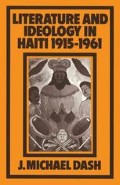Abstract
In 1931 the quarrel between Louis Aragon and André Breton which divided the Surrealists, brought to light the contradictions contained in the Surrealist ideal of fusing poetry and revolution and did much to undermine the influence of this movement in Europe. Those who saw themselves as ’orthodox’ Surrealists opted for the creative anarchy of révolution permanente and followed the ‘pure’ poetic experimentation of Breton and Dali. Those who saw poetic revolution in terms of political engagement followed Aragon’s example. Surrealism in Europe would never recover from this schism. The crises of the Spanish Civil War and the Second World War only served to vindicate Aragon’s belief that the artist had an immediate public responsibility to commit himself politically. Sartre’s Qu’est-ce que la littérature seems to consolidate Aragon’s position by voicing reservations as to the limitations of the poetic act. Dévoiler le monde is the motto for the écrivain engagé but poets ‘refuse to use language. Now as it is in and through language conceived as a certain kind of tool that that the search for truth operates, one cannot imagine that they aim to detect the truth or to expose it.’1
It is when the black proletariat … has access to the right to eat and the world of the imagination, a Caribbean poetry will exist only then. Etienne Léro, Légitime Défense, 1932
Not once during those hard years of Vichy domination did the ideal of freedom grow dim here and it is to surrealism that we owe this … Surrealism, taut cord of our hope. Suzanne
Césaire, Tropiques, Oct. 1943
A harsh style, full of images, for the image is the drawbridge which allows unconscious energies to be scattered on the surrounding meadows. It is full of colour too, bronzed, sunbaked and violent. Frantz Fanon, The Wretched of the Earth, 1961
The moon is a drunkard Purity a legend The sea is only a trap The sky a lie Love has crossed over to the enemy camp Enough talk Let us create a new world with our own resources. René Dépestre, Gerbe de sang, 1946
Access this chapter
Tax calculation will be finalised at checkout
Purchases are for personal use only
Preview
Unable to display preview. Download preview PDF.
Notes
Jean-Paul Sartre, Qu’est-ce que la littérature (Paris: Gallimard, 1948) p. 17.
Roger Gaillard, ‘André Breton et nous’, Conjonction, no. 103, Dec. 1966, 9.
René Dépestre, Por la revoluciñn, por la poesía (Havana: Instituto del libro, 1969) p. 176.
Paul Laraque, ‘André Breton en Haiti’, Nouvelle Optique, Vol. 1 no 2 May 1971, 126.
Aragon, Poet of the French Resistance, ed. Josephson and Cowrey (New York: Duell, Sloane and Pearce, 1945) p. 6.
Ghislain Gouraige, ‘D’une jeune poésie à une autre’, Rond Point, no. 12 Dec 1963, 14.
René Dépestre, Traduit du Grand Large (Paris: Pierre Seghers, 1952) p. 48.
René Dépestre, Etincelles (Port-au-Prince: L’Etat, 1945) p. 1. Page numbers are taken from this edition.
Louis Neptune, Gouttes de fiel (Port-au-Prince: Henri Deschamps, 1946) p. 1.
Paul Eluard, Uninterrupted Poetry: Selected Writings (New York: New Directions 1975) p. 140.
Jacques Roumain, Bois d’Ebène, reprinted in La Montague ensorcetée (Paris: Français Réunis, 1972) pp. 231–2. Dépestre elaborates on his relationship with Roumain and the cultural situation in post-war Haiti in an interview published in Trente ans de pouvoir noir en Haiti (1946–1976) (Montreal: Collectif Paroles, 1976).
René Dépestre, Gerbe de sang (Port-au-Prince: ‘Etat’, 1946). Page numbers are taken from this edition.
René Dépestre, Poète à Cuba (Paris: Pierre Jean Oswald, 1976) p. 23.
Cf. Frantz Fanon, ‘Sur la culture nationale’, Les damnés de la terre (Paris: Maspero, 1961)
James Baldwin, ‘Princes and Powers’, in Nobody Knows my Name (London: Michael Joseph, 1964).
René Dépestre, Journal d’un animal marin (Paris: Pierre Seghers, 1964).
Author information
Authors and Affiliations
Copyright information
© 1981 J. Michael Dash
About this chapter
Cite this chapter
Dash, J.M. (1981). Surrealism and Revolution: René Dépestre and the Generation of 1946. In: Literature and Ideology in Haiti, 1915–1961. Palgrave Macmillan, London. https://doi.org/10.1007/978-1-349-05670-5_6
Download citation
DOI: https://doi.org/10.1007/978-1-349-05670-5_6
Publisher Name: Palgrave Macmillan, London
Print ISBN: 978-1-349-05672-9
Online ISBN: 978-1-349-05670-5
eBook Packages: Palgrave Literature & Performing Arts CollectionLiterature, Cultural and Media Studies (R0)

